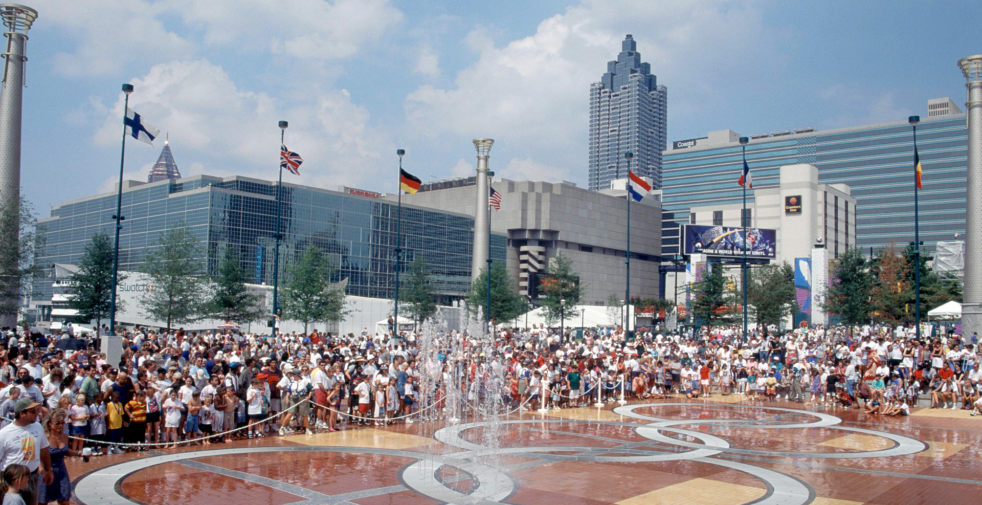With the Tokyo 2020 Olympics beginning in less than a month, people all over the world are looking forward to seeing the epic athletic festival make its return after a year of delay. While most Tech students are resigned to watching the games on TV this year, past members of the Tech community were able to see the Olympics take place right in their backyard.
The Atlanta 1996 Olympic Games were held from July 19 – Aug. 5, 1996, and were the last summer Olympic Games held in the United States. Despite taking place almost 25 years ago, the impacts of this event are still evident today in the city and on campus, and reflecting on the games also represents diving into Atlanta and Tech’s recent history.
By the numbers, the 1996 Games boast many noteworthy figures in Olympic history. Aptly referred to as the Centennial Olympic Games, the event was the 100th anniversary of the first modern Olympic Games in 1896. The Games were also the first to include athletes from all 197 recognized National Olympic Committees; they also saw the debut of multiple events, such as beach volleyball, mountain biking, and women’s soccer, which brought the total number of sports featured to 26 with 271 events in total.
The 1996 Games were also important for American Olympic history, as they were the first time since 1968 that the US won a non-boycotted summer games. The games were also significant for the heavy reliance on private sponsorships to cover costs, which led to complaints of over-commercialization of the games but also allowed the city of Atlanta to turn a profit afterwards.
The event also had many defining moments, such as boxing legend Muhammed Ali lighting the cauldron to kick off the games, and especially impressive performances in track and field that year. The 1996 Games were also marred by the Centennial Olympic Park bombing on July 27, an attack by an American terrorist that wounded 111 people and led to the deaths of two others.
Despite the tragedy during the Games, its aftereffects on Atlanta and Tech were overwhelmingly positive. Preparations for the games led to massive improvements in Atlanta’s infrastructure and the construction of Centennial Olympic Park and what is now Center Parc Stadium. Many of these projects revitalized Atlanta’s economy and bolstered its reputation as a true global city.
Tech also contributed to the Games’ success and reaped the benefits they brought to the city. McAuley Aquatic Center was constructed for the Olympics and the facility eventually expanded into the CRC. Some dorms on campus were also originally built for the Olympic Village, housing elite athletes from all over the world.
Tech provided more than just infrastructure to the Olympics, as a Tech professor designed the Olympic torch for the event.
Sam Shelton, former ME professor and Director Emeritus of Tech’s Strategic Energy Institute, went through countless designs for the torch with his team, balancing both the looks and functionality of the important Olympic symbol. Shelton also participated in the torch relay and carried his creation along its journey to Centennial Olympic Stadium.
Alexander Memorial Coliseum, now McCamish Pavilion, also underwent renovations and served as the competition site for Paralympic volleyball.
The massive efforts to prepare for the Olympic Games almost 25 years ago still impact life at Tech and in Atlanta today. Whether students are living in the former Olympic Village or taking a walk through Centennial Olympic Park, life at the Institute has been shaped by the same games that the world will tune in to again this summer.
